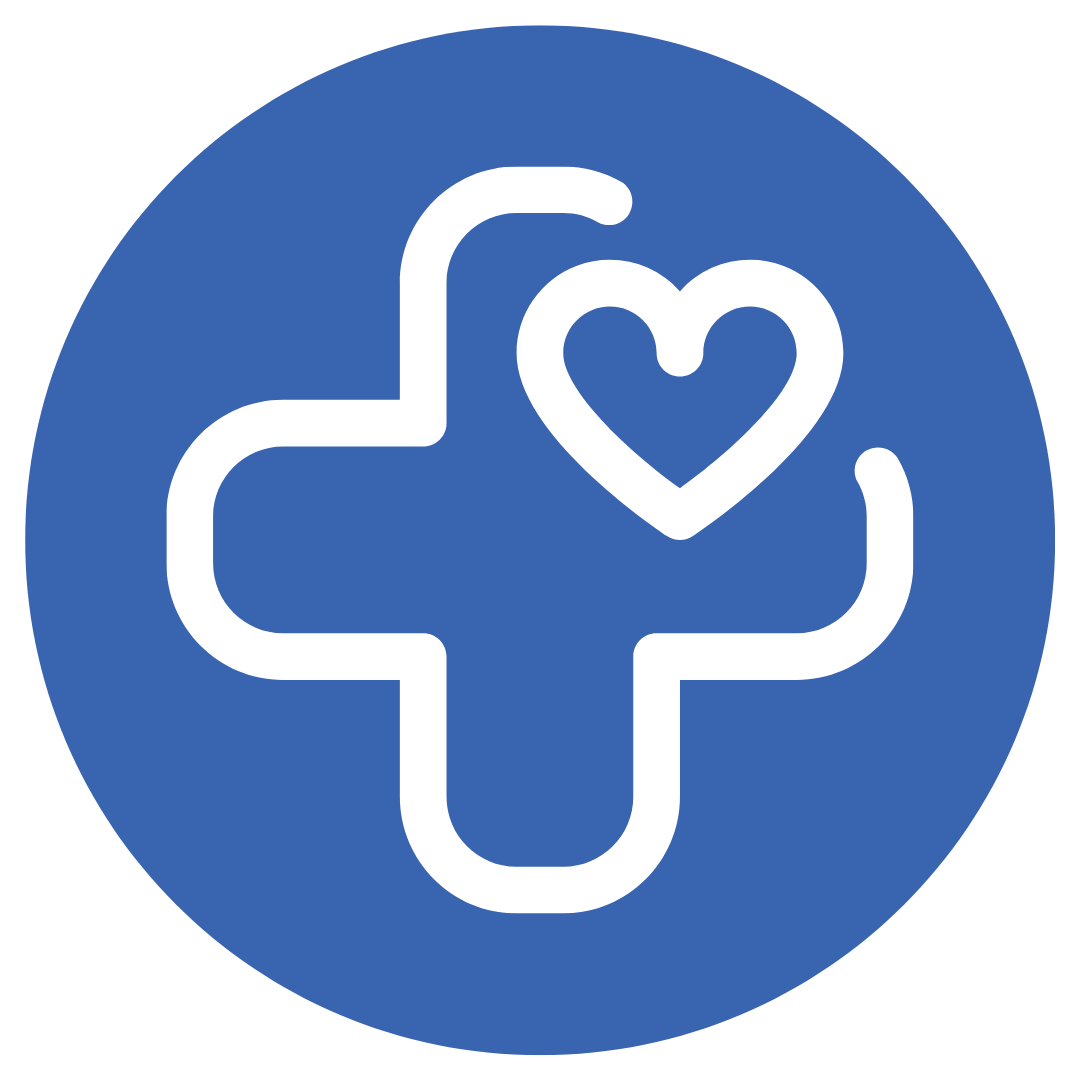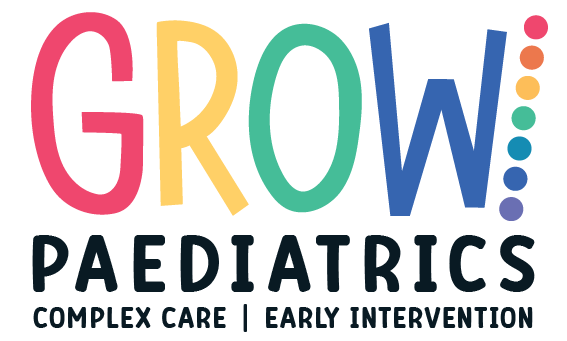Additional Supports
-

Speech
-

Sleep
-

Toileting
-

Feeding
-

Medications
Specialist Educator
At GROW Paediatrics, our specialist educators are dedicated to supporting your child's development through a comprehensive, play-based approach. Holding early childhood degrees, our educators possess a deep understanding of all aspects of childhood development. They focus on fostering essential skills through play, ensuring that learning is both engaging and effective. By building warm, meaningful relationships with both children and their families, our educators create a nurturing environment where children feel safe to explore, learn, and grow. Whether it's enhancing cognitive abilities, language skills, or social-emotional development, our team is committed to helping your child thrive.
Allied Health Assistant Program
Empowering Progress Through Collaborative Care
At GROW Paediatrics, our Allied Health Assistant (AHA) Program is designed to complement and enhance your child’s therapeutic journey. Working under the guidance of our experienced therapists, AHAs provide tailored support to help your child achieve their developmental goals. This collaborative approach ensures continuity of care and maximizes the benefits of therapy.
How Can Our AHA Program Support Your Child?
Reinforce Therapy Goals
- AHAs work directly with your child to practice and strengthen skills introduced during therapy sessions.
- Examples include developing fine motor skills, improving communication techniques, or building confidence in daily routines.
Consistency and Continuity
- With regular sessions, AHAs provide consistent reinforcement of strategies, ensuring progress is sustained between therapy appointments.
Skill Development in Everyday Environments
- AHAs focus on applying therapeutic goals in real-life settings, such as home, school, or the community.
- This practical support helps your child generalize their skills and builds independence.
Increased Access to Therapy
AHAs provide cost-effective support, allowing for additional sessions to extend your child’s therapy program.
What Does an AHA Session Look Like?
Every session is carefully planned in collaboration with your child’s therapist. AHAs deliver engaging, goal-oriented activities in a fun and supportive environment. Sessions may include:
- Practicing communication skills with interactive games.
- Encouraging sensory exploration to support emotional regulation.
- Assisting with self-help tasks like dressing, toileting, or mealtime routines.
Why Choose GROW’s AHA Program?
At GROW Paediatrics, our AHAs are highly trained and supervised by our skilled therapy team. This ensures that every session aligns with your child’s therapeutic goals and supports their overall progress. We are committed to providing holistic, family-centered care that empowers both children and their families.
Is the AHA Program Right for My Child?
Our AHA Program is ideal for children who:
- Need extra practice to build on therapy goals.
- Benefit from consistent support to develop skills.
- Thrive with structured, hands-on activities in their natural environments.
Get Started Today!
To learn more about how our Allied Health Assistant Program can support your child’s therapy journey, contact us at hello@growpaediatrics.au Let’s work together to help your child thrive!
Support Work
Empowering Families, Enhancing Independence
At GROW Paediatrics, our Support Work Program is dedicated to providing personalised, practical assistance to children and their families. Our trained support workers help children navigate daily challenges, build independence, and participate fully in their home, school, and community environments.
How Does Support Work Help Your Child?
Practical Assistance in Daily Routines
- Support workers assist children with activities like dressing, toileting, mealtime routines, and hygiene.
- This practical help fosters independence and builds confidence in everyday tasks.
Social and Community Participation
- Our support workers encourage and facilitate participation in community activities, school events, or social outings.
- This focus on inclusion helps children build friendships and develop critical social skills.
Reinforcement of Therapy Goals
- Support workers collaborate closely with therapists to ensure that therapy strategies are integrated into daily life.
- Examples include practicing communication skills during outings or applying self-regulation techniques during challenging moments.
Family Support and Relief
- By providing hands-on assistance, our support workers give families the time and space to recharge, knowing their child is in caring and capable hands.
What Does a Support Work Session Look Like?
Each session is tailored to the child’s needs and goals. Activities may include:
- Helping a child practice toileting routines to build independence.
- Supporting participation in extracurricular activities, such as sports or art classes.
- Assisting with transitions, such as moving from home to school or vice versa.
- Guiding social interactions during playdates or community outings.
Why Choose GROW’s Support Work Program?
At GROW Paediatrics, our support workers are trained to provide compassionate, child-centered care. Every plan is developed in collaboration with families and therapists to ensure a consistent, holistic approach that aligns with the child’s goals.
Who Can Benefit from Support Work?
Support work is ideal for children who:
- Need assistance with daily routines or self-care tasks.
- Require support to participate in social or community activities.
- Benefit from additional practice to apply therapeutic strategies in real-life settings.
Get Started Today!
Ready to explore how our Support Work Program can support your child and family? Contact us at hello@growpaediatrics.au or book a consultation to discuss your needs. Together, we’ll create a plan to support your child’s growth, independence, and success!
Key Worker
In the early intervention space, the key worker model is widely recognized as best practice for delivering effective, coordinated care. This approach designates a primary professional who takes the lead in managing and coordinating the child's care and intervention services.
By focusing on the following principles, the key worker model ensures that children receive coordinated, high-quality care tailored to their individual needs, promoting better developmental outcomes and supporting families through the early intervention process.
Here’s how it works:
Key Worker Model: A Best Practice Approach
Central Point of Contact
The key worker serves as the main point of contact for the child and their family. They help to simplify the process by providing consistent communication and support, ensuring that families have a clear understanding of the intervention plan and how to navigate the services available.
Holistic Coordination
The key worker coordinates with other specialists—such as speech pathologists, occupational therapists, and physiotherapists—to create a unified intervention strategy. This coordination ensures that all aspects of the child's needs are addressed in a comprehensive manner, avoiding duplication and enhancing the effectiveness of the intervention.
Individualised Care Plans
The key worker develops and implements personalised care plans tailored to each child's unique needs. By working closely with families, they ensure that the interventions are relevant and adapted to the child's developmental stage, strengths, and challenges.
Family-Centred Approach
This model emphasises the importance of family involvement in the intervention process. The key worker supports and empowers families by providing them with the tools, resources, and guidance they need to actively participate in their child’s development and progress.
Continuity and Consistency
The key worker provides continuity of care, which helps build a strong, trusting relationship with the child and their family. This consistent relationship fosters a more effective intervention process and supports better outcomes for the child.
Best Practice Evidence
Research and evidence in the field of early intervention consistently highlight the effectiveness of the key worker model. It is associated with improved outcomes in child development, greater family satisfaction, and more efficient use of resources.
-

1:1 Telehealth Appointments
Request Services -

Professional Development & Workshops
Book Now -

1:1 Consult - Albury, VIC
Request Services



